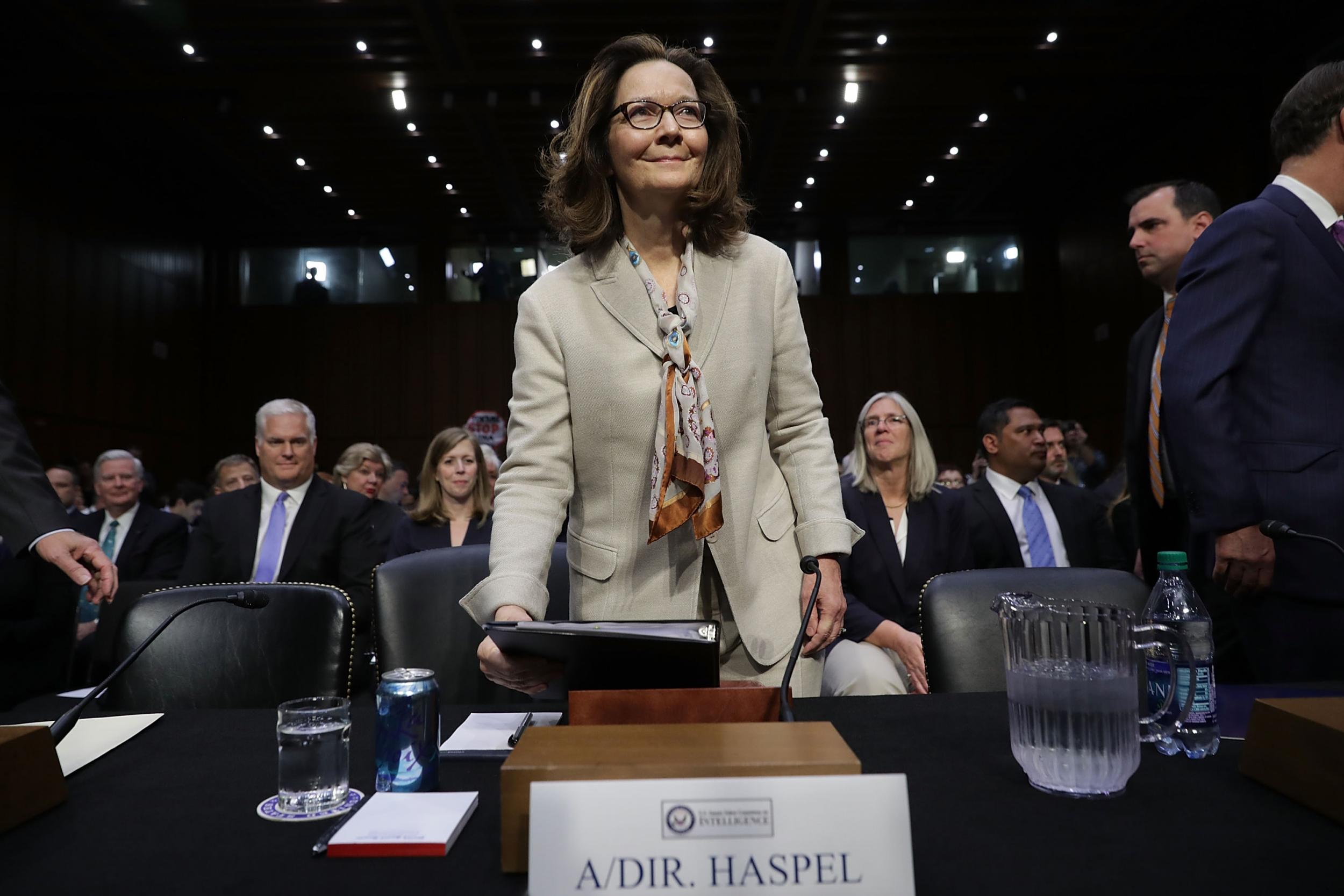Gina Haspel, Trump's pick to run the CIA, passes crucial Senate committee vote
Nomination now moves to full Senate vote

Donald Trump’s pick to lead the CIA has passed a crucial Senate committee vote, all but guaranteeing she will be confirmed as the first female director of the agency.
Gina Haspel, a 33-year CIA veteran and current acting director of the agency, passed her Senate Intelligence Committee vote easily, with 10 senators in favour and five opposing. Thanks to five Democratic senators who’ve said they’ll support her nomination, she is widely expected to pass a forthcoming full Senate vote.
Ms Haspel was a controversial choice for CIA director given her involvement in the agency’s post-9/11 interrogation programme. In her Senate confirmation hearing, Ms Haspel refused to disavow techniques previously used by the CIA – such as waterboarding – or to deem them “immoral”.
But in letters to Democratic senators ahead of the committee vote, Ms Haspel said the CIA should never have undertaken the interrogation programme and would not return to it under her leadership.
The letter convinced Democratic Senator Mark Warner, the vice chair of the intelligence committee, to pledge his support for the nominee. In a statement following the committee vote, he praised Ms Haspel as an “independent voice” and “strong advocate for the agency’s workforce”.
“Most importantly, I believe she is someone who can and will stand up to the president if ordered to do something illegal or immoral – like a return to torture,” he said.

Another Democrat on the committee, California Senator Kamala Harris, voted against Ms Haspel, citing concerns about her "commitment to transparency". Much of Ms Haspel's three-decade CIA career is classified, and several senators have questioned whether the agency purposefully withheld damaging information about the nominee.
Four more Democratic Senators – Heidi Heitkamp, Bill Nelson, Joe Manchin, and Joe Donnelly – have pledged to support Ms Haspel, all but guaranteeing her the Senate majority she needs to be confirmed.
Two Republicans – John McCain and Rand Paul – have said they will oppose her nomination. Mr McCain, a US navy veteran who was tortured as a prisoner of war in Vietnam, said confirming Ms Haspel would send the wrong message about America’s position on torture.
“Ms. Haspel’s role in overseeing the use of torture by Americans is disturbing,” he said in a statement. “Her refusal to acknowledge torture’s immorality is disqualifying. I believe the Senate should exercise its duty of advice and consent and reject this nomination.”
Civil rights groups such as the American Civil Liberties Union (ACLU) have also expressed concern with Ms Haspel’s nomination. In a statement following the committee vote, the ACLU criticised Mr Warner and committee chair Richard Burr for proceeding to a vote without releasing classified information about Ms Haspel’s role in the interrogation programme.
The intelligence committee, the ACLU said, “let Gina Haspel get away with hiding the entirety of her torture record”.
Ms Haspel briefly oversaw an American “black site” prison in Thailand where at least one detainee was waterboarded. In her confirmation hearing, she refused to say whether she had overseen the waterboarding, or had pushed for the expansion of the “enhanced interrogation programme”.
As chief of staff for the clandestine service director in 2005, Ms Haspel also drafted a cable ordering the destruction of nearly 100 videotapes of CIA waterboarding sessions. Ms Haspel and the CIA maintain that her boss at the time, Jose Rodriguez, independently chose to sign and send the cable. A 2011 internal review absolved Ms Haspel of any wrongdoing.
The CIA’s interrogation programme has been denounced as “torture” by multiple foreign governments, United Nations officials, and even former US President Barack Obama. A 2014 Senate Intelligence Committee report found the programme was flawed, and that officials portrayed it as more effective than it was.
In her confirmation hearing, Ms Haspel said she would “never, ever” take the CIA back to an interrogation programme.
“My moral compass is strong, I would not allow CIA to undertake activity that I thought was immoral, even if it was technically legal,” she said.
Join our commenting forum
Join thought-provoking conversations, follow other Independent readers and see their replies
Comments
Bookmark popover
Removed from bookmarks